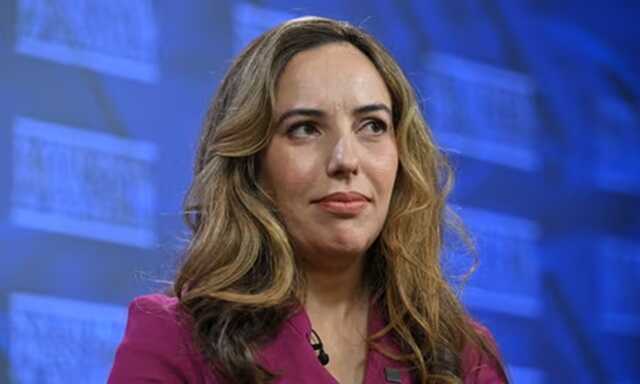
The wife of Wikileaks founder Julian Assange has said she is "elated" after her husband agreed a plea deal under which he will be freed.
Stella Assange told BBC Radio 4’s Today programme they had never been able to enjoy normal family life, and the priority was for Mr Assange to "get healthy again".
Mr Assange has spent the last five years in London’s Belmarsh prison, fighting extradition to the United States for the offence of leaking military secrets.
He left the UK on Monday after reaching an agreement with US authorities.
Mr Assange and US authorities have agreed he will plead guilty to one charge under the Espionage Act, instead of the 18 charges he was originally accused of, relating to Wikileaks publishing confidential US military records.
He had previously denied the charges, saying the leaks were an act of journalism.
For years the US has argued Mr Assange’s disclosure of files relating to the Iraq and Afghanistan wars had endangered lives.
Mr Assange has been criticised by some, including former Australian Foreign Minister Alexander Downer who said he was "guilty of a very serious offence", and former US Vice President Mike Pence, who called the plea deal a "miscarriage of justice".
Mr Assange was first arrested and bailed in December 2010 on charges related to sexual offences in Sweden, which he denied.
In June 2012 he entered the Ecuadorean embassy in London, where he spent seven years hiding, claiming the case would mean he would be sent to the US.
The case was dropped in 2019 after Swedish authorities said too much time had elapsed since the original complaint, but the Wikileaks founder was arrested at the embassy in June of that year for "failing to surrender to the court" in 2012.
Stella Assange, who married Mr Assange in prison in 2022, said her family will be reunited outside of prison for the first time in her sons’ lives.
Speaking to the BBC from Australia, where Mr Assange is a citizen and they plan to settle, Mrs Assange said her children, aged five and seven, have not yet been told their father is due to be freed.
She said the priority now "is for Julian to get healthy again".
"He’s been in a terrible state for five years. To be in contact with nature, that’s what we both desire for now, and to have time and privacy and just start this new chapter."
"It’s always been quite extraordinary," she said. "I’m just so emotional now that this is finally over."
Only after he signs a deal with an American judge in the US jurisdiction of the Northern Mariana Islands will Mr Assange be a "free man", she said.
Under the deal, he will plead guilty to a single charge - conspiracy to obtain and disclose national defence information - and will not serve any additional time in custody, after spending five years in a British prison.
According to Mrs Assange, this deal will be signed "sometime tomorrow".
An order from the High Court was signed on 19 June, granting Mr Assange conditional bail to allow him to travel to sign the plea deal.
The agreement was made after a bail hearing last Thursday that was "held in private at [Mr Assange’s] request", according to Stephen Parkinson, the director of public prosecutions.
Mr Parkinson said the case had "absorbed considerable time and resource from the criminal justice system over many years", and its conclusion would "save... substantial resource outlay".
Mrs Assange said a "breakthrough" in her husband’s case came when the High Court in London began to consider his constitutional protections under the freedom of the press.
"That’s when we saw a breakthrough in relation to an agreement between the parties," she said.